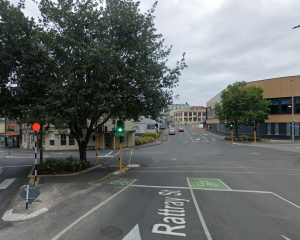
Otago University researchers gained 34% of the $63 million available from the HRC in the latest funding round, with Auckland University researchers gaining $28.9 million (about 46%).
Prof Geoff White, the Otago research deputy vice-chancellor, said that researchers at the university's campuses in Dunedin, Christchurch and Wellington had been successful in the "extremely competitive" round.
Otago scientists gained 18 research contracts, including two new research programmes, one programme extension, and 11 research projects.
Dr Tony Merriman, a Senior Research Fellow in the Otago biochemistry department, was "very pleased" to gain just over $3.4 million for a new three-year research programme involving the "application of genetics to the pathogenesis of common chronic conditions".
The programme which Dr Merriman leads is the biggest new research programme funded by the HRC throughout the country this year.
The programme co-ordinates the study of genetics, gene expression and outcomes for five important diseases: abdominal aortic aneurism, rheumatoid arthritis, schizophrenia, gout and inflammatory bowel disease.
The research could lead to earlier and more accurate diagnosis and potentially more effective early treatment, Dr Merriman said in an interview.
The funding would support the continued employment of technicians and postgraduate researchers at his Dunedin arthritis laboratory and would also provide key support for other related research projects within the programme, both in Dunedin and Christchurch, he said.
Dr Jade Hollis-Moffatt, who now works at Dr Merriman's laboratory as a postdoctoral researcher, had two reasons to celebrate yesterday.
Pleased, no doubt, with the laboratory's funding, Dr Hollis-Moffatt, who is of Ngati Porou ancestry, also gained an HRC Emerging Researcher First Grant ($137,707) to undertake research with Ngati Porou Hauora, a Maori health agency, on the genetic origins of gout on the North Island's East Coast.
Dr Sangsun Yoon, microbiology and immunology, also gained an Emerging Researcher grant ($149,823).
The HRC also funded a three-year extension of a large health inequalities research programme ($4,310,406), led by Prof Tony Blakely, of the university's Wellington campus.
Prof Mark Richards, of the university's Christchurch campus, gained $1,917,993 for a programme involving new ways to predict the onset and progression of heart diseaseAssociate Prof Bob Hancox, deputy director of the university's Dunedin Multidisciplinary Health and Development Research Unit, gained $1,850,398 to undertake the Dunedin Next Generation Studies, a five-year-long project which will significantly extend the unit's research and will investigate aspects of "intergenerational cycles of adversity".
Prof Barry Taylor, of women's and children's health, gained $2,179, 960 for a study involving prevention of rapid weight gain in early childhood.
Other Dunedin researchers gaining HRC funding include: Dr Patricia Priest, preventive and social medicine, $797,205; Associate Prof David Bilkey, psychology, $796,117; and Ms Kate Morgaine, Otago School of Dentistry, oral sciences, $100,000.
Significant funding was also gained by researchers at the university's Christchurch campus (more than $5.78 million) and the Wellington campus ($6.4 million), the latter including two HRC feasibility study grants.












